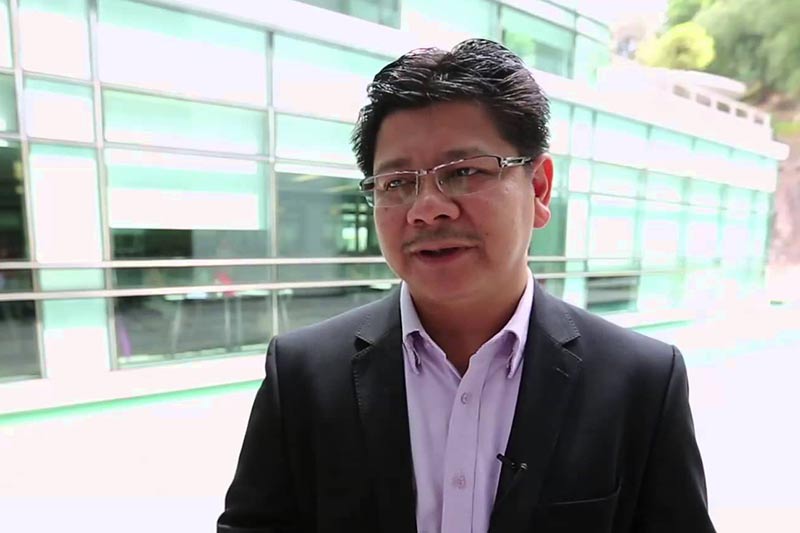
Could you give us a brief introduction about PEMANDU?
PEMANDU is the abbreviation for Performance Management and Delivery Unit, we are a department under the Prime Minister’s Department. We promote, facilitate and project manage under the identified national key economic areas, in which the transformation plan is laid out till 2020.
Tell us more about your role as Director at PEMANDU.
The Malaysian government has identified 12 key economic areas and one of them is the communications, content and infrastructure and all matters in relation to IT falls under that area. My role is I’m the director of that sector and what I do is I interact both with the private sector and government agencies, ensure all projects in relation to IT where we need investment from the private sector or investment made the government will be facilitated and make sure the investment process is speedy so people can start the projects as early as possible. Once the project starts, we have to monitor the project and when we see if that it is lacking in progress, we provide methodologies to identify road blocks that could have happened, to allow the project to come back on track so that it finishes within the given time. At the end of the day, what we measure is Gross National Income, investment and jobs creation.
Right now, at your department, what are the major areas of focus?
At the infrastructural level, we are looking at building the capacity for broadband, to have the capacity to be able to provide a minimum of 20 megabits all the way to the rural areas, come 2020, so that’s one area we are looking at. There are a couple of projects there.
The second will actually be the connectivity amongst the government agencies as well as the build-up of applications within the government agencies so that a lot more digital interaction can happen. So that will allow us to interact faster between each other and with the public. The third is to generate a healthy eco-system of content creation. Content here involves payment applications, as well as full-fledged content like forms and documentations.
In terms of major projects at PEMANDU, could you just share with us some of the more significant ones?
I will tell you about the top three projects we are doing now:
a) On the infrastructure, we have the high-speed broadband project that is a public-private partnership that will increase the number of ports available for high-speed broadband services. Second, there is the sub-urban broadband project, again, it is to increase the number of ports and be able to provide high speed broadband to the sub-urban and rural areas.
The third big project on infrastructure will be the sub-marine cables, that interconnects East Malaysia and Peninsular (West) Malaysia, so the access to Internet is better, be it whether you are in East Malaysia or West Malaysia. So that’s one cluster of big projects.
b) The second big project we have is on the government side, where we have actually undertaken to make that all government agencies are connected by a single network, which is called the 1Gov*Net. This project was started in 2011, completed in 2013 and today, based on that, we have moved to the next level, we are growing the number of processes and applications to ride onto the network, and allowing more services to be accessed by the public.
c) The other big project is attracting production investment into Malaysia.This is pretty much content based, things like mini-series you watch on Netflix, Marco Polo, was shot in Malaysia so those kinds of production investments we also help manage.
We know about the Eleventh Malaysia Plan (2016-2020). What is PEMANDU’s role in that area? Are there any road maps or directives laid out by PEMANDU towards this plan?
The Eleventh Malaysia Plan cannot be read singularly, it needs to be a read as a continuum of the 5-Year Malaysia Plan that we have, the predecessor of the Eleventh Malaysia Plan would be the Tenth Malaysia Plan. The Tenth Malaysia Plan started in 2010 and ended in 2015 and the Eleventh Malaysia Plan starts in 2016 and ends in 2020. In the transformation programme that the Prime Minister has announced in 2010, what we do is make sure that there’s a plan to ensure the continuity of the transformation programme with focus on the sectors that we have identified. We ensure there’s continuity because at the end of the day, we are all measured on the same measure of Gross National Income, which allows Malaysia to maintain the income per capita of 15,000 USD so that we have the end gain of creating a high number of jobs, which contributes to the high income nation. They are all inter-related and we are always there to connect the dots to make sure that whatever we want to do, we will come in to provide the KPI management to make sure the performance continues to be the same so that we all achieve the set targets that we talked about.
What are some of the biggest challenges you face in your role?
Everything you do, there will be challenges. Challenges of people adopting new culture, e-performance indicators, the ways one get measured, so that’s a big challenge. The second challenge will be data collection. Sometimes people would collect too much data and a lot of it end up being useless, so the challenge we have is to trim the data and try to find an equilibrium. So the third challenge would be managing stamina and coping with fatigue, especially when some of the government projects under the transformation programme can last for 10 years. In the private sector, it’s different, the fatigue will usually be well-compensated at the end of the year whereas in government we don’t have that kind of incentive.
















